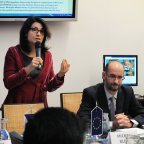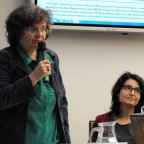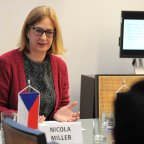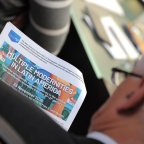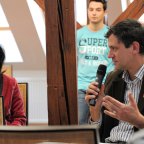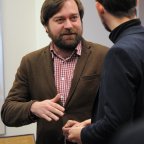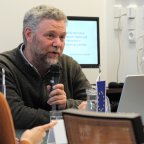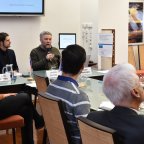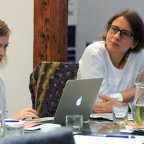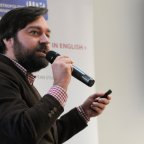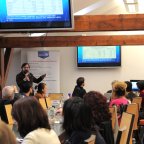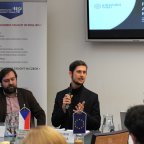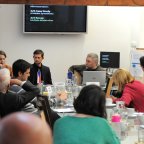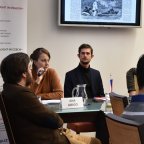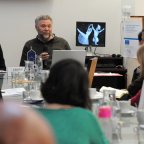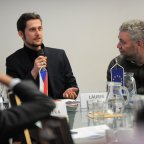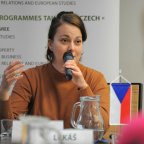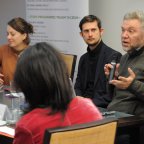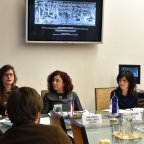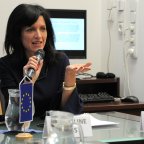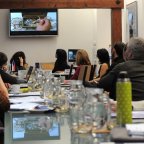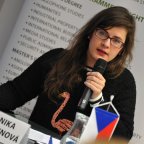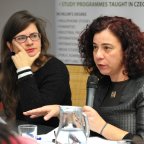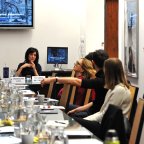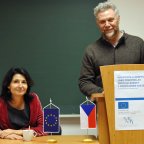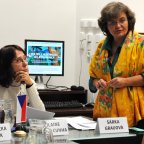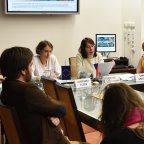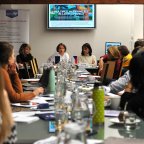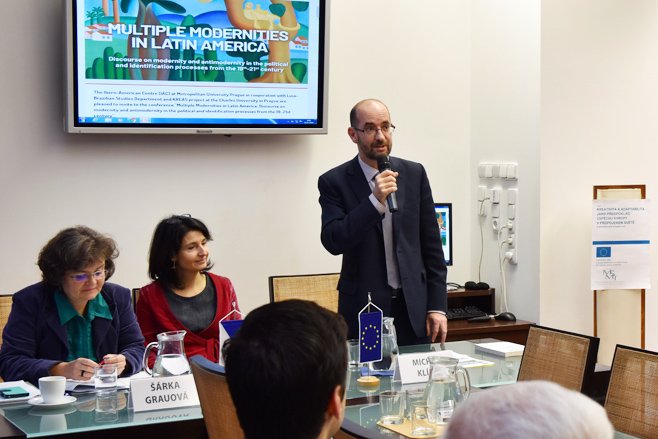
Multiple Modernities in Latin America
30. 11. 2018 Author: Kateřina Březinová The international congress held by the Iberoamerican Centre of the Metropolitan University Prague and Luso-Brazilian Studies Department and KREAS project of the Charles University in Prague examined the modes of thinking about how to become modern and how to make the societies better within the Ibero-American political and cultural space, that is in Hispanic America, as well as Brazil, Spain and Portugal. It inquired about the ways modernity and modernization were understood in the past, as well as in the present day’s political and cultural processes in the region.Scholars from Austria, Brazil, Czech Republic, Great Britain, Poland, Spain, Uruguay and the U.S. asked whether there have been specific Hispanic America’s, Brazilian or Iberian trajectories to modernity. Were the Enlightenment ideas conceived externally and imported to the region as a result of its colonial and postcolonial experience? In words of a keynote speaker, prof. Nicola Miller from the University College London, one salient theme in the debates about modernity was that Reason alone was an inadequate guide to making a better society and needed to be complemented by aesthetics, ethics and communication. A second major theme of Ibero-American debates about modernity was that the binary oppositions, such as traditional and modern, or universal and particular, that are embedded in modern north European thought were invalid in theory and dehumanising in practice.
With several day-long sessions, including pre- and post-conference talks, lectures and informal meetings attracting over 100 assistants – among them academics, graduate students, undergraduate students, representatives of diplomatic corps, NGOs and other organizations – the conference provided a unique forum for expert debates on Latin America and the Ibero-American political and cultural space.
Other items from the/this section
 A new Centre for European Energy Policy and Security
1. 2. 2026 Author: Lukáš Tichý
A new research centre is being established at MUP to complement the Centre for Security Studies and other regionally focused research centres – the Centre for African Studies, the Centre for Middle Eastern Studies and the Centre for Ibero-American Studies. It will operate under the Department of International Relations and European Studies and the leadership of Dr. Lukáš Tichý.
A new Centre for European Energy Policy and Security
1. 2. 2026 Author: Lukáš Tichý
A new research centre is being established at MUP to complement the Centre for Security Studies and other regionally focused research centres – the Centre for African Studies, the Centre for Middle Eastern Studies and the Centre for Ibero-American Studies. It will operate under the Department of International Relations and European Studies and the leadership of Dr. Lukáš Tichý.
 ACCA Qualification Opportunities for MUP Students
18. 12. 2025 Author: Irena Jindřichovská
Metropolitan University Prague hosted guest presentations focused on ACCA professional qualification opportunities for students of economics and management programmes. The presentations were delivered by Dr. Pavel Procházka, Business Relationship Manager at the international professional body ACCA (Association of Chartered Certified Accountants).
ACCA Qualification Opportunities for MUP Students
18. 12. 2025 Author: Irena Jindřichovská
Metropolitan University Prague hosted guest presentations focused on ACCA professional qualification opportunities for students of economics and management programmes. The presentations were delivered by Dr. Pavel Procházka, Business Relationship Manager at the international professional body ACCA (Association of Chartered Certified Accountants).
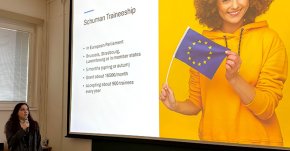 Erasmus Day 2025
17. 12. 2025 Author: Martina Fantová
On Friday, 12 December 2025, the MUP International Office organised the Erasmus Day event to inform interested students about all international opportunities available at MUP.
Erasmus Day 2025
17. 12. 2025 Author: Martina Fantová
On Friday, 12 December 2025, the MUP International Office organised the Erasmus Day event to inform interested students about all international opportunities available at MUP.
